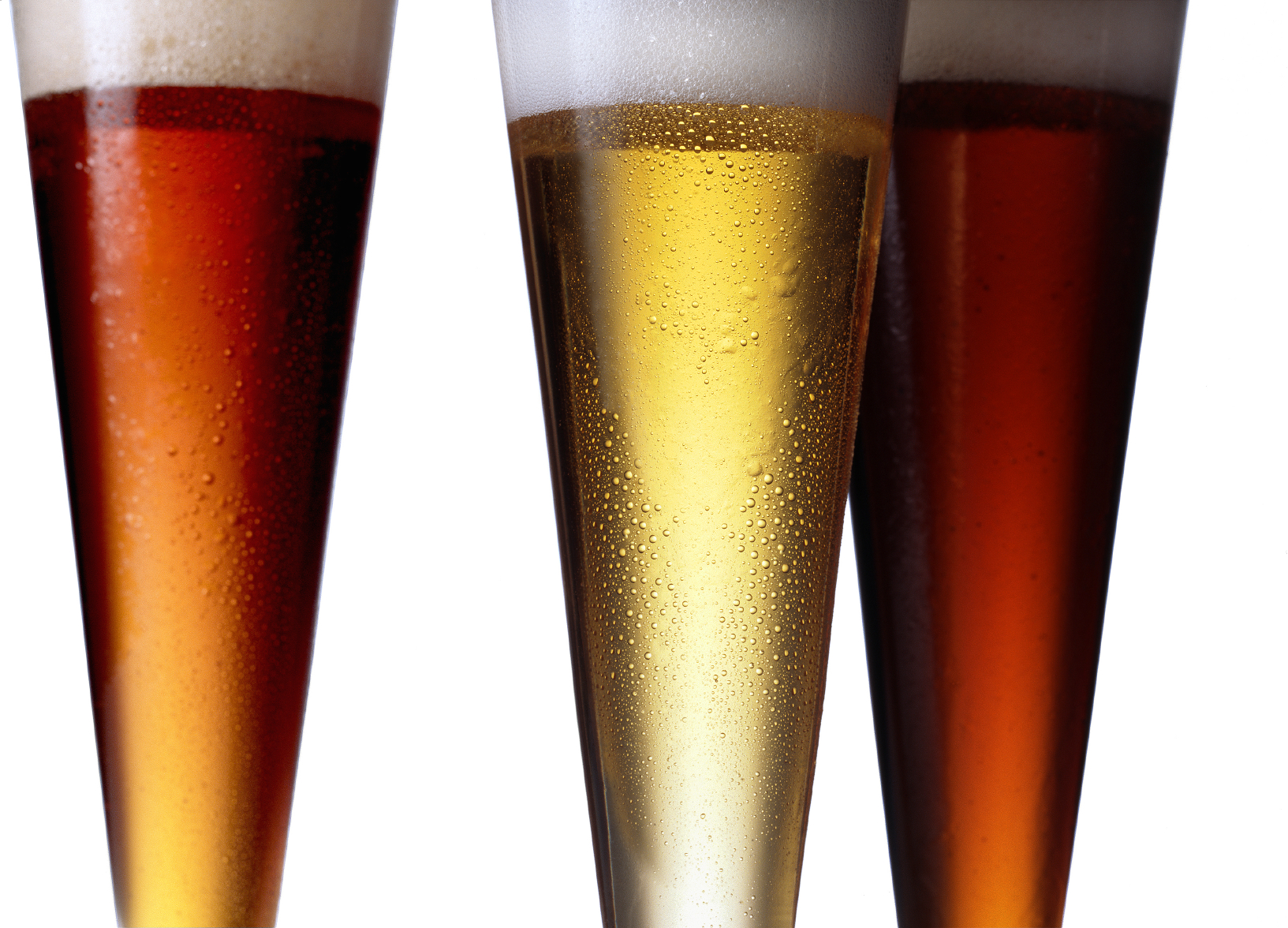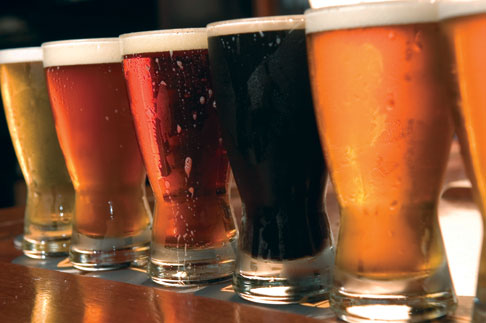The Benefits of Beer
Filed under: General Health, Nutrition
I want to start this post with a bit of a disclaimer. The health benefits from alcohol consumption are hotly debated, as most of the data comes from epidemiological research and other relationship style studies, not cause-and-effect controlled trials. In addition there is no doubt that binge drinking or excessive consumption can cause massive problems, affecting nearly every organ and system in the body.
However, based on the data that is available, and the fact that historically many cultures have engaged in moderate consumption, I think a reasonable case can be made for the benefit of alcohol.
While wine, red wine in particular, gets most of the hype for the health benefits from alcoholic beverages, beer is no slouch in this department either.

This might come as a surprise to many, but beer can actually be a healthful addition to your diet. However, this requires you to actually consume it in moderation, with a daily intake of 1 drink per woman, and 1-2 drinks for men. Like with most substances there is a U-shaped curve to its benefits.
Non-consumption won’t give you any benefits, 1-2 drinks and you are reaching the peak of the curve, any more and you start trending down the curve and can actually create problems.
So what kind of benefits am I talking about here? Quite a few.
Unknown to most, the main benefit to alcohol consumption is the ethanol itself. Alcohol intake is largely associated with a decreased risk of coronary artery disease (CAD), and this is achieved with moderate consumption of any alcoholic beverage.
Moderate consumption increases HDL, quite significantly I might add, lowers LDL, and it reduces the risk of blood clotting and thrombosis by decreasing fibrinogen levels and blood platelet stickiness. These effects have actually been seen with controlled trials by the way, not just associations. However these are soft endpoints, the data on hard endpoints (like developing CAD, or mortality) are mostly associations. The up to 62% lower risk of CAD is from association data.
Besides its association with a decreased risk of CAD, moderate alcohol consumption has also been associated with a decreased risk for gallstones, type 2 diabetes and increased cognitive abilities in the elderly.
Ok, that all sounds sweet, but beer has some of its own unique associations as well. It has been found to lower the risk of kidney stones compared to other types of alcohol, and beer drinking is also associated with greater bone mineral density (even more so than other alcohol, which still had a positive association), possibly due to its high silicon content.

One neat little factoid that I came across was that beer actually contains fiber. While the USDA database may list beer’s fiber content as zero, it appears that this is due to the official method of measuring dietary fiber in food not be applicable to beverages. And let me tell you from personal experience that measuring fiber content sucks (especially in high-pectin blueberries).
In fact it was recently found that lager contains about 0.75 grams of soluble fiber in 12oz, and a dark beer about 1.3 grams.
While wine is famous for its resveratrol content, and it does have much higher levels of polyphenols than beer, beer does contain ferulic acid and other phytonutrients depending on its malt source and total hops content.
Again it can’t be stated enough that you will only get benefits from moderate consumption, alcohol is a drug, and excessive intake can lead to more problems than moderate intake will ever dream of fixing. In the end it does seem clear that moderate drinking is at least associated with health improvements, and at the very least a drink or two can help to take the edge off, decrease stress and improve mood, which can’t be underestimated in the over-stressed world we live in today.
Check out the BSP Training & Nutrition Newsletter!
You will get immediate access to:
- Weekly updates and exclusive content.
- The 20-page report "The Truth About Saturated Fat & Cholesterol."
- Become more awesome!
Posted on February 25th, 2011 by Brian St. Pierre
7 Comments




February 25th, 2011 at 12:09 pm
While you’ve laid out the scientifically clear benefits, I wonder how much of the health benefits of moderate alcohol consumption is related to the stress-reducing (and therefore health-improving) aspects of social drinking, rather than inherent qualities of the alcohol itself. Having one or two good-quality beers is something I associate with hanging out with good friends, having a good time, chatting, laughing — all things that are very good at reducing stress. In other words, does having one or two drinks alone produce the same benefits as having one or two drinks with friends?
February 25th, 2011 at 2:16 pm
[...] This post was mentioned on Twitter by Burnham Coaching, FitFinity. FitFinity said: The Benefits of Beer http://bit.ly/ePnpIQ [...]
February 26th, 2011 at 11:32 am
What about the deleterious effects of gluten in beer?
March 2nd, 2011 at 6:51 am
If you are gluten sensitive sure, but for the rest of us it is such a minute amount that it shouldn’t be a problem.
March 2nd, 2011 at 6:54 am
While I definitely think there is a lot to be said for the social aspect of drinking having its own health benefits, there are clear cause and effect trials from alcohol causing health benefits. Now could the two still be intertwined somewhat, sure.
I would take 1-2 drinks with friends over 1-2 drinks alone anytime. There is no doubt which one is more beneficial and enjoyable.
August 11th, 2011 at 8:45 am
[...] http://brianstpierretraining.com/index.php/the-benefits-of-beer/ [...]
September 26th, 2011 at 3:28 pm
does the estrogenic content of the hops in beer have a significant impact on testosterone levels if one consumes 4-6 bottles a week?